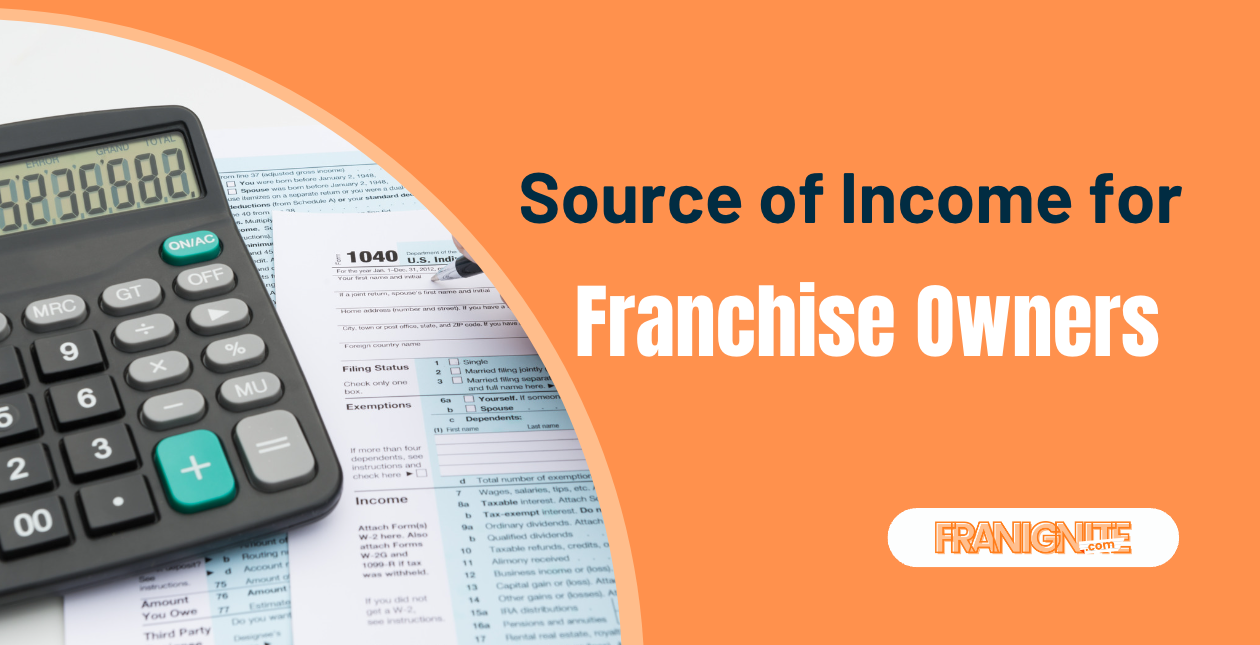Do you wonder about the source of income for franchise owners? Do they earn a salary or commission, or profit? Well, franchisees are technically self-employed and receive their compensation. In other words, individuals enter the franchise business intending to make money rather than relying on a paycheck. As a result of this arrangement, the financial future of franchise owners is very bright. Profits from sales and service transactions, as well as an optional yearly compensation, can be generated even in the most competitive sectors by a franchise owner.
Glassdoor reports that some large corporations offer their franchisees a wage, although this isn’t always the case. There is a national average pay of $72,286 per year for franchise owners in the US. Check the Glassdoor link here, and you can filter it by state.
Source of Income for Franchise Owners
Sales and Service Profit
The lifeblood of a franchisee’s business is derived from sales and service transactions. A franchisee’s earnings come from the sales and service activities of the business. What’s left after the overhead expenditures have been paid is this (i.e., equipment costs and fees; inventory and supplies; staffing, salaries and benefits; a brick-and-mortar location).
Profit after Fees
An established financial and organizational strategy may necessitate a large initial investment for franchisees. Two franchise fees exist an upfront buy-in fee and a percentage of sales plus an annual lump-sum cost.
For example, according to Investopedia, “Dunkin’ Donuts costs about $40,000 to $90,000 in initial franchise fees, 5.9% in royalties and 5% for advertising.” The first-time buyer’s price varies from $109,700 up to $1,637,700. A shop with $900,000 in yearly sales owes the business about $100,000. After adding the material cost of about $200,000, the franchisee is left with approximately $600,000.
Following the deduction of expenses, the profit decreases. Mortgage, rent, utilities, labor and taxes are all included in this category. Even if the owner’s hypothetical coffers are depleted, a franchisee working for a well-known brand will still make a profit at the end of the year.
Salary Statement
As long as the franchisor provides the franchisee a regular wage, the owner may be able to tap into the franchisee’s equity to meet their needs. You must be a sole proprietorship or a partnership to use this option. The withdrawals made by company shareholders may impact operating cash flow and taxation. To put their minds at ease, any franchise owners contemplating accepting a salary should consult a financial advisor or tax attorney.
Income for Franchise: The Future
Independent business owners must put in the time and effort to expand their businesses, which a franchise owner may do on their behalf. Given the factors above, a profit strategy is in place, and the numbers lead to a successful franchising venture.




